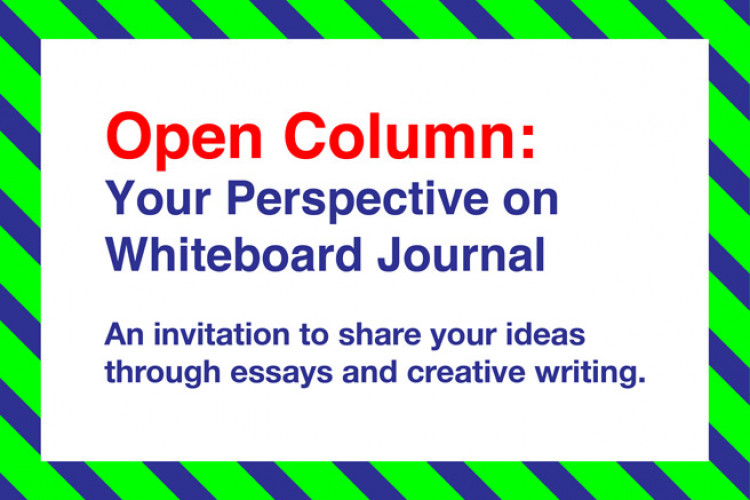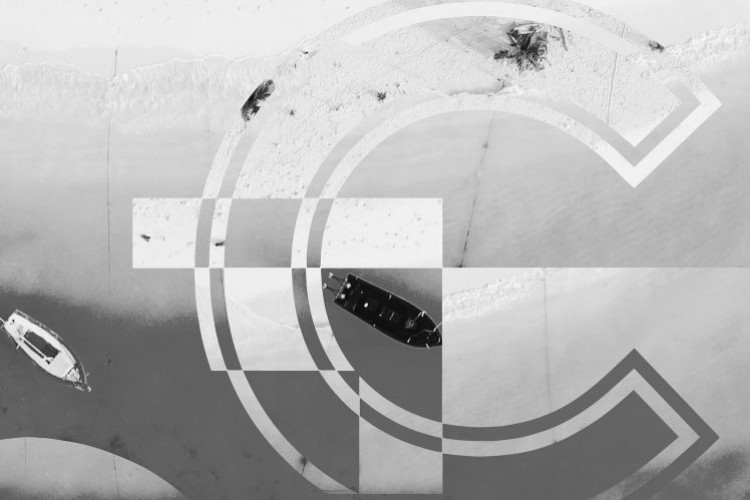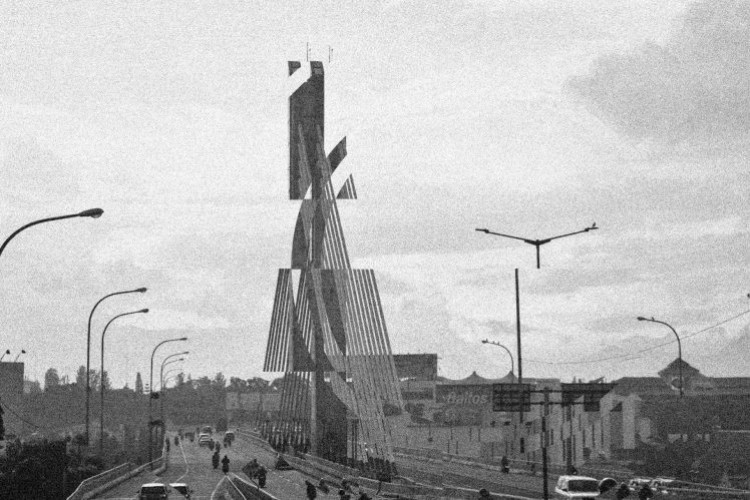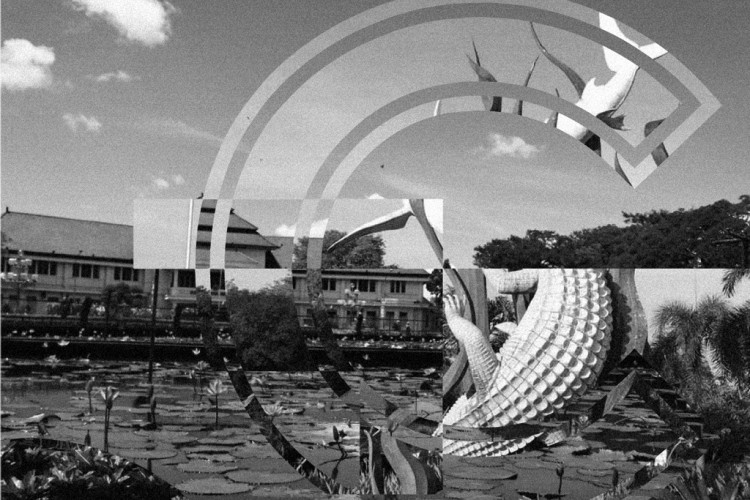The Imaginary Freedom and Nationalism
A Personal View of Indonesia’s Sociopolitical Condition.
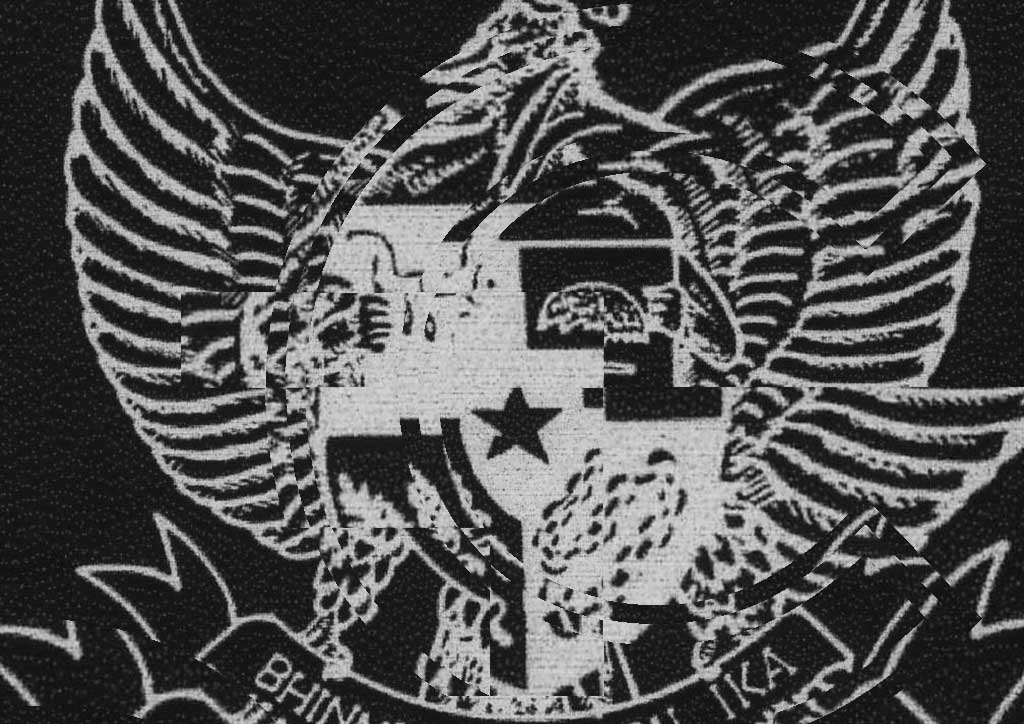
“How long has Indonesia been independent of colonialism? What are Indonesia’s national identity and values or motto? What is the current sociopolitical condition of Indonesia?”
Those are questions from my European and Asian friends who were curious about the world’s most populous Muslim nation portrayed in the media as equipped with an abundance of natural resources, hospitable people, beautiful beaches, and mountains and moderate government.
For a person who has never been abroad before, pursuing a postgraduate degree in one of the most critically acclaimed higher education institutions in social sciences in the world is already a super challenging endeavor. Getting used to being unbiased when answering questions about my own country is another one.
The first two questions can be automatically answered even by students in elementary school as the answers have been imprinted in the minds of Indonesian through various school courses, especially Civics and History-71 years for the first question, and Pancasila and Bhinneka Tunggal Ika for the second one-while the answer for the last question allows for a deeper thinking process to answer.
However, even those taken-for-granted answers seem to have lost their meanings and become irrelevant now that conflicts and problems in Indonesia are mounting owing to the absence of government as the force capable of protecting the public and the dysfunctional state apparatus.
Pancasila, the national philosophy of Indonesia comprising of five points adherent to humanitarian precepts and basic principles of human rights was promulgated in 1945 and since then has gradually been embodied in Indonesia’s constitutional and legal system. Meanwhile, Bhinneka Tunggal Ika, meaning unity in diversity, is the motto and the spirit of life of Indonesia which was created due to the plurality of ethnic, religion and language in Indonesia.
Nevertheless, being the foundations of Indonesia for 71 years does not necessarily make the principles and values of both Pancasila and Bhinneka Tunggal Ika ingrained to the minds of Indonesian, even to the leaders of the nation.
With Indonesians attacking, even killing, each other to defend each of their own belief and tradition when this nation was built upon the spirit of togetherness and shared aspiration; our armed forces attempting to secure the nation’s unity by oppressing our own fellow Indonesians in Aceh and Papua; people showing repressiveness to freedom of sexual orientation and expression; higher education institution reduced to only a place of exchanging “largely acceptable” views and ideas; regulations and policies made to fulfill certain party’s agenda instead of the greater public interest; law enforcement still open for negotiation with capital owners; residents forcibly evicted from their homes without proper discussion facilitated beforehand, nor compensation; thousands of households not having the capability to earn adequate livelihood while in various international stages we incessantly declare ourselves as a rich nation with abundant resources; and most importantly, with the government endorsing those actions of intolerance and ignoring the continually increasing discrepancy, it is difficult to still declare that people of Indonesia have respect to and deep shared comprehension of Pancasila and Bhinneka Tunggal Ika.
The depressing fact is that although Indonesia might no longer be occupied by other countries and that we might have been transitioning to a so-called democratic country, some of our fellow Indonesians are instead colonized by our own people and government, and most of our resources are exploited by giant companies for their business interest-an evident confirmation of the government’s failure to create fundamental reforms after all this time.
As a result, Pancasila, Bhinneka Tunggal Ika or even President Joko Widodo’s famous idea of Revolusi Mental (mental revolution) movement have simply become appealing buzzwords and part of the prevailing habit of celebrating sensation while, at the same time, ignoring essence.
The nation that is claimed to have overcome its darkest nightmares in 1965 (Indonesian Massacres) and 1998 (1998 Riots), and since then entering Reform Era seems to be moving very slowly and left behind neighboring countries in almost every aspect of governance-from education quality, poverty index, wealth distribution, human rights index, corruption index, law enforcement to media governance.
Incompetence of governing a country, incomprehension of state administration as well as discriminatory law enforcement process are publicly shown as if they are normal and reasonable to be tolerated and accepted. Adding to that, disobedience to court’s interim decision as seen in the case of Bukit Duri, South Jakarta eviction in which Basuki Tjahaja Purnama shows the public that the Governor of DKI Jakarta is capable of going above the law by ignoring the ongoing trial in the court and carrying out the demolition process.
In national level, Joko Widodo (Jokowi), Indonesia’s 7th president chosen by people due to his portrayal in the media as an honest, genuine, clean, simple, practical, and sensible leader figure which is contradictory to his competitor, Prabowo Subianto’s image as an intimidating, violent and unreachable person, seems to have forgotten or have yet succeeded in fulfilling his promises in 2014 national election campaign.
We were too wowed by his modest persona and gesture, as well as his way of thinking-for the reason that he is different from his predecessors-that we forgot to critically review the logic and feasibility of his ideas and programs, including the political configuration which he might encounter during his tenure at the office. Even worse, Jokowi’s frantic proponents seem to have lost their reasons to believe in and support him now that his administration has yet demonstrated any significant progress and changes since Jokowi was sworn in as president on Oct. 20, 2014.
Earlier, he declared commitment to protecting human rights, to intensify the war on corruption and battle against cronyism and injustice, to refuse coalition with conditions, to achieve food self-sufficiency and economic growth above 7%. Along with that, Jokowi proposed a range of priority infrastructure projects and programs which at present no longer sound convincing considering the available budget might not suffice to fund the projects on one hand, and the difficulties to translate the seemingly appealing programs into a national-scale set of agenda on the other hand.
As we get further from the first time the promises and programs were sparked and as we get used to Jokowi’s leadership style, we lose track of how the implementation of the promises and programs has been carried out.
If it’s not covered in the media, will people notice as to what extent the Trans-Sumatra toll road, sea toll road, 35,000 MW power plants, Keureuto dam or railroad network in Papua projects have progressed?
In addition to that, if the protest against cement plant construction in Rembang, catastrophic forest fires in Sumatra, human rights abuses in Papua are no longer reported by the media, does it necessarily mean that the problems have been solved and justice have been served?
With 71 independence days celebrated and 7 presidents inaugurated, we might have arrived at a moment where we perceive that the situation in which the unevenly distributed freedom and right to justice, economic discrepancy, and propagating corruption and violence is inevitable-a “new normal”, that we have to cope with or even an integral part of Indonesia as a legacy from the systematic repression under New Order regime. This then influences our perception about freedom.
On one hand, we take our freedom for granted without asking if we can use our freedom to liberate the others. We think that it is just right to go forward with living our daily life only thinking about our own and our relatives’ freedoms while every day more of our fellow Indonesians get their rights for political, social and economic freedom violated.
As a result, we tend to develop an antipathy to those who actively voice their opposition and criticism to the government and state apparatus, or those who present their rationales which contradict the popular notion. We label them as non-nationalist, while at the same time, we adore those who represent the nation in international stages to defend our sovereignty by rejecting the facts about domestic human rights violation and bragging about our commitment to human rights protection.
Apparently, it is more important for us to declare our greatness in managing problems at home to the global audience than literally properly solving them.
While some of our fellow Indonesians who are wronged, marginalized and still live under oppression and deprivation have not yet obtained their political, social or economic freedoms, some of us are trapped in an imagination that we are living up to the spirit of nationalism by supporting the use of whatever methods in keeping the unity of Indonesia, or mostly known through the jargon NKRI harga mati.
Is the meaning of nationalism truly that narrow or is it because, as Benedict Anderson states, nationalism is just an imaginary concept, and that perhaps we have come to a realization that to live up to the spirit of it is too costly?
Thus, led by the pragmatism installed in our minds, we reject anything that seems or is depicted incompatible with the nation’s values and principles, oftentimes by not exploring those “different” ideas or views beforehand, including that of separatist movement, socialism, communism and LGBT.
Little that we realized that heretofore we have only been imagining freedom and nationalism. Nonetheless, even if we realized it, would we be willing to revisit our comprehension of, and actions in regards to those two concepts?
Would we care to voice our frustration and aspiration to the government for them to stop making promises and instead take real action and start creating fundamental reforms? And would we be willing to start creating change from ourselves-opening our mind for a new understanding produced from horizontal discussion where ideas and opinions are processed through communication instead of prejudice and biases?
—
“The Imaginary Freedom and Nationalism” ditulis oleh:
Debora Irene Christine
A former communications practitioner working in Jakarta who is currently undergoing her postgraduate program in Media, Communication and Development at the London School of Economics and Political Science (LSE), United Kingdom.








